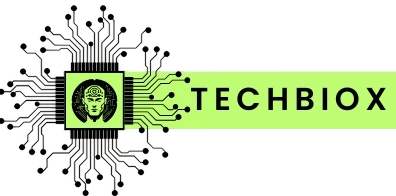What is ThoughtWorks?
ThoughtWorks is more than just a global software consultancy—it’s a movement that champions tech excellence, ethical innovation, and a better future. Established in 1993, this company has stood the test of time by delivering cutting-edge solutions and staying ahead of the tech curve.
With a mission to deliver extraordinary impact through technology, ThoughtWorks partners with some of the world’s most influential organizations to solve complex problems.
But here’s the catch: they don’t just write code. They build digital products that matter. Think of them as the tech whisperers behind many of the smooth, scalable systems used in industries ranging from healthcare to finance.
The emphasis on quality, collaboration, and social impact makes ThoughtWorks a magnet for bright minds who want more from their careers than just a paycheck.
Global Presence and Reputation
Headquartered in Chicago, Illinois, ThoughtWorks operates across 18 countries and 50 cities. Their global presence gives employees a chance to collaborate with international teams, travel for projects, or even relocate to other offices.
It’s not unusual to find developers from São Paulo working with product managers in Berlin and designers in Bangalore—all on the same project.
ThoughtWorks has consistently ranked high in employee satisfaction, diversity, and innovation indexes. Whether it’s Glassdoor reviews or LinkedIn Top Companies lists, ThoughtWorks regularly makes an appearance—and that’s no accident.
Why Work at ThoughtWorks?
Looking for a place that nurtures your tech obsession and values your voice? ThoughtWorks might just be your dream workplace. Here’s why:
-
Inclusive culture that respects and celebrates differences.
-
Learning opportunities that never dry up.
-
A purpose-driven mission that ties technology to real-world impact.
-
Freedom and flexibility to grow your career in multiple directions.
So whether you’re a budding engineer or a seasoned strategist, ThoughtWorks offers a space to be bold, build, and belong.
Company Culture and Core Values
Commitment to Diversity and Inclusion
At ThoughtWorks, diversity isn’t a corporate buzzword—it’s baked into the company’s DNA. They’ve set bold goals for representation and inclusion, and they actually hold themselves accountable. With a strong focus on gender balance in tech (a sector notoriously male-dominated), the company has made impressive strides in hiring and supporting women, non-binary, and underrepresented folks in tech roles.
Their inclusive hiring practices, safe workspaces, and allyship programs make it clear: everyone is welcome, and every voice counts. The best part? It’s not just HR lip service—real actions back these values.
Innovation-Driven Environment
Innovation at ThoughtWorks isn’t confined to a “labs” team or a hackathon here and there. It’s a lifestyle. Whether it’s experimenting with AI in ethical ways or building open-source tools for developers worldwide, innovation seeps into daily work.
Employees are encouraged to challenge the status quo, question assumptions, and propose wild ideas. The mantra here is: “Fail fast, learn faster.” That culture of exploration means ThoughtWorkers are constantly pushing boundaries—both personal and technological.
Work-Life Balance and Flexibility
ThoughtWorks gets that you’re not a machine. Life happens, and they’re cool with that. From flexible hours to generous parental leave and wellness support, the company offers benefits that support your whole self.
Remote work? Totally on the table. Want to work from a beach house or cozy up in a mountain cabin while debugging code? As long as you’re productive and collaborative, the where doesn’t matter as much as the how.
Career Opportunities at ThoughtWorks
Tech Roles – Developers, Architects, and Engineers
ThoughtWorks is a haven for tech enthusiasts. From software engineers and DevOps specialists to data scientists and solution architects, the tech roles here are as diverse as they are impactful.
-
Software Developers at ThoughtWorks don’t just write code—they design robust systems, mentor peers, and often contribute to open-source projects.
-
Architects guide clients through digital transformation journeys, designing scalable solutions with foresight.
-
Quality Analysts and DevOps Engineers ensure delivery is seamless, fast, and foolproof.
Every project offers a new puzzle to solve, and every team is a fresh mix of talents. It’s like joining a new band each time—with the same mission: build something great.
Business and Strategy Roles
If you’ve got a head for business and a heart for tech, ThoughtWorks has room for you too. Business analysts, product consultants, and strategy leads work alongside technical teams to shape client roadmaps and steer projects toward success.
These roles require strong communication skills, domain knowledge, and a knack for storytelling with data. You’ll be helping organizations adapt to digital disruption while advocating for user needs and ethical design.
Design and Experience Jobs
User experience is king, and ThoughtWorks knows it. Designers here aren’t just decorating interfaces—they’re crafting journeys. From UX researchers to UI designers and experience strategists, these roles shape how users interact with software solutions.
Designers work shoulder-to-shoulder with developers, bringing human-centered design to every sprint. Got a creative streak and a love for problem-solving? This is your stage.
Internship and Graduate Programs
Just starting out? The ThoughtWorks Early Careers programs are gold. These internships and graduate tracks give you real responsibilities, access to mentors, and a sneak peek into the consultancy lifestyle.
You’re not fetching coffee—you’re shipping code, sitting in client meetings, and getting your hands dirty with real-world tech stacks. Many interns convert to full-time roles and go on to lead teams in a few short years.
The Recruitment Process at ThoughtWorks
How to Apply
ThoughtWorks keeps it simple. Head to their careers page, search for open roles by location or expertise, and apply with your updated resume and cover letter. Customize your application—generic doesn’t cut it here.
They also participate in job fairs, university recruitment, and host events, so networking is another great way to get noticed.
Interview Stages and What to Expect
The hiring process is multi-layered but fair. It typically involves:
-
Initial screening call – A recruiter gauges your fit and clarifies your experience.
-
Technical assessment – May include coding challenges, case studies, or architectural reviews.
-
Pair programming – ThoughtWorks often uses this to assess collaboration skills.
-
Behavioral interview – Evaluates how well you align with company values.
-
Final round – Sometimes includes a leadership interview or client simulation.
Expect transparency at every step. They’ll keep you in the loop, and feedback is often detailed.
Tips to Stand Out as a Candidate
-
Be authentic. ThoughtWorks values real people with real passions.
-
Show your work. Whether it’s GitHub, Dribbble, or a personal blog—put it out there.
-
Know your why. Why ThoughtWorks? Why this role? Why now?
-
Brush up on ethics in tech. This company cares deeply about the bigger picture.
Career Growth and Development
Training and Learning Resources
ThoughtWorks isn’t just a workplace—it’s a learning hub. Whether you’re a fresh graduate or a senior architect, the company encourages constant learning. They offer comprehensive training programs that blend technical mastery with leadership and soft skills.
One of the standout features? The ThoughtWorks University (TWU). This immersive program is designed for new hires and junior consultants to get hands-on experience with client simulations, agile practices, and pair programming. It’s an intense, high-value bootcamp that sets the tone for what’s expected in real projects.
Beyond TWU, ThoughtWorkers have access to a wide range of:
-
Online learning platforms like Pluralsight, O’Reilly, and Udemy
-
Internal knowledge-sharing sessions
-
Tech talks and webinars by industry leaders
-
Workshops and hackathons
Here, learning never stops. If you’re the type who thrives on curiosity and growth, you’ll feel right at home.
Mentorship and Career Progression
Climbing the career ladder at ThoughtWorks doesn’t follow a one-size-fits-all pattern. Instead, you get to define your own path, supported by structured mentorship, goal-setting, and feedback mechanisms.
Each employee is paired with a career manager who provides guidance, helps you identify growth opportunities, and ensures you’re on track. Whether your goal is to become a principal consultant, a people lead, or a global strategist, there’s a clear path and support system in place.
Internal performance reviews are transparent, peer-driven, and developmental rather than punitive. You’re evaluated not just on technical output, but also on collaboration, ethics, and client impact.
Internal Mobility and International Opportunities
Tired of the same view? ThoughtWorks encourages internal movement—both vertically and geographically. You can switch roles, projects, or even countries based on your goals.
Fancy a stint in Berlin or Sydney? As a global consultancy, international assignments are not just possible—they’re encouraged. Employees can apply for transfers to different offices, work on remote global teams, or join short-term client engagements abroad.
This kind of flexibility doesn’t just add flavor to your resume; it deepens your worldview and expands your professional toolkit. No matter where you go, you stay rooted in the ThoughtWorks ecosystem.
Compensation and Benefits
Salary Expectations
ThoughtWorks offers competitive compensation that reflects the market standard, your experience level, and the value you bring to the table. While exact figures vary by region and role, what stands out is the transparency in pay structures and fairness in evaluation.
Mid-level software developers, for example, earn a respectable salary in line with major tech firms, while senior consultants and tech leads command higher brackets due to their influence on project success.
But beyond base pay, what makes the total package compelling is everything that comes with it.
Perks and Bonuses
Here’s a peek into the extra goodies:
-
Performance-based bonuses
-
Profit sharing options (in certain regions)
-
Home office setup allowances
-
Paid learning and certification programs
-
Flexible working stipends
ThoughtWorks doesn’t nickel and dime their talent—they invest in them. And when the company does well, employees share in that success.
Employee Wellness and Support Programs
In a world that’s becoming more burnout-prone, ThoughtWorks doubles down on well-being. The company provides:
-
Mental health support, including counseling sessions and workshops
-
Health insurance with comprehensive coverage for you and dependents
-
Generous parental leave, regardless of gender or family structure
-
Paid time off, including volunteer days for causes you care about
-
Ergonomic and tech support for remote workers
They also have employee support groups, wellness clubs, and a culture that actively discourages overworking. Balance isn’t just preached—it’s practiced.
Voices from Inside ThoughtWorks
Employee Testimonials
Want the inside scoop? Just ask a ThoughtWorker. Their employee testimonials often paint a consistent picture: challenging, empowering, and meaningful.
One developer described their journey as, “The first time I felt my voice mattered in a company.” Another designer said, “They hired me for my talent but kept me for my growth.”
The diversity of thought and respect across levels are common highlights. Whether it’s through formal programs or informal mentorship, people feel seen, supported, and celebrated.
ThoughtWorkers’ Day-to-Day Life
No two days are the same, and that’s exactly the thrill. One day, you might be leading a sprint review for a Fortune 500 client; the next, you’re mentoring a junior or attending a design jam session.
The work is agile, iterative, and deeply collaborative. Teams often work in pairs, share responsibilities, and rotate roles to keep things dynamic. Feedback loops are short, and problem-solving is a collective sport.
It’s not unusual to break for a team game, yoga session, or simply grab virtual coffee with someone across the globe. Work-life integration feels natural here.
Case Studies of Career Success
There are countless stories of people who joined ThoughtWorks at an entry-level position and went on to lead international teams. One former intern is now the regional director for APAC. Another who started in QA pivoted into AI research and now advises clients on ethical AI systems.
These aren’t anomalies—they’re part of a pattern where talent is nurtured, not hoarded. If you’re ambitious and open to learning, the sky isn’t even the limit.
Diversity, Equity, and Inclusion Initiatives
Women in Tech Programs
ThoughtWorks walks the talk when it comes to gender equity. Their Women in Tech initiative includes scholarships, leadership training, hiring goals, and dedicated communities for support.
Programs like “Interning with Pride” and “Women Who Code” partnerships are designed to dismantle the barriers women often face in tech. The company tracks its metrics, publishes progress reports, and celebrates milestones openly.
LGBTQ+ and Minority Support
It’s not just about gender—ThoughtWorks is a safe and affirming space for LGBTQ+ folks, people of color, neurodivergent professionals, and others who often feel excluded in tech.
-
Pride ERGs (Employee Resource Groups)
-
Inclusive healthcare policies
-
Bias training and inclusive hiring practices
-
Support for name and identity changes
You’re encouraged to show up as your full self—and supported if you’re on a journey to discover that self too.
Global Inclusion Campaigns
From Black History Month to International Women’s Day and Pride Month, the company actively supports and celebrates diverse voices. They host webinars, internal town halls, blog series, and even client events around these themes.
More than just performative—these initiatives are participatory, employee-led, and aimed at real systemic change.
ThoughtWorks and Social Impact
Tech for Good Initiatives
ThoughtWorks believes that technology should serve humanity—not the other way around. That’s why they’ve invested heavily in Tech for Good initiatives. These projects aren’t about flashy headlines; they’re about real change—solving problems for nonprofits, marginalized communities, and mission-driven organizations.
Examples include:
-
Building apps for human rights defenders in crisis zones.
-
Developing platforms for public health tracking in underserved areas.
-
Creating accessible tools for education and disability support.
This isn’t side-project territory. These initiatives are integrated into the business model. Employees often dedicate part of their working hours to these causes or join fully sponsored fellowships to contribute their skills where it matters most.
Open Source Contributions
ThoughtWorks is big on open source—and they don’t just use it; they build it. Engineers here are encouraged to contribute to the wider developer community, create reusable tools, and share knowledge freely.
From their own frameworks like Gauge and Bahmni (an open-source health system) to contributions to major platforms like Kubernetes or React, ThoughtWorkers are pushing the envelope.
What’s in it for you? A culture where your work has visibility, your ideas are heard, and your portfolio grows with real-world impact.
Community Outreach and Support
Beyond tech, ThoughtWorks invests in education, awareness, and advocacy. Their community outreach includes:
-
Coding bootcamps for underprivileged youth
-
Public workshops on digital privacy and internet freedom
-
Tech mentorship for minorities and refugees
They also partner with educational institutions, NGOs, and community organizers globally. If you’ve ever wanted your work to mean more, this is the kind of place where career and cause can finally align.
Remote Work and Global Collaboration
Embracing the Future of Work
Even before the global remote work revolution, ThoughtWorks was ahead of the curve. Remote-first practices are deeply embedded in the culture, and employees can choose hybrid, remote, or in-office setups depending on role and location.
This flexibility is matched by trust and autonomy. You’re not micromanaged—you’re empowered. Performance is measured by output and collaboration, not by face time or clock-punching.
Tools and Platforms Used
ThoughtWorks equips its teams with best-in-class tools for seamless global collaboration:
-
Slack, Zoom, Miro, and MURAL for communication and ideation
-
JIRA, Confluence, and GitHub for agile project tracking and code management
-
Internal wikis and knowledge portals for continuous learning
Tech support is fast and responsive, and everyone’s set up with high-performance gear, no matter where they are. Whether you’re brainstorming in Bangalore or prototyping in New York, it feels like you’re sitting in the same room.
Managing Cross-Regional Teams
Cross-timezone collaboration can be tricky, but ThoughtWorks handles it like a pro. Teams are deliberately structured to overlap working hours, and there’s a strong emphasis on:
-
Async communication
-
Clear documentation
-
Inclusive meeting practices
Workshops, retrospectives, and demos are adapted to make sure everyone gets a voice, regardless of geography. If you’re used to siloed environments, this level of coordination might blow your mind—in a good way.
How ThoughtWorks Compares to Other Tech Giants
ThoughtWorks vs Google, Microsoft, and Amazon
Let’s break it down:
Feature ThoughtWorks Google Microsoft Amazon Innovation Culture High High High Medium Work-Life Balance Excellent Good Good Moderate Diversity Commitment Very High Moderate High Low to Moderate Open Source Focus Strong Strong Medium Low Tech for Good Impact Core Mission Side Projects Partnerships Rare Hierarchy Flat Structured Corporate Rigid ThoughtWorks thrives in the consultancy + activism hybrid space, whereas tech giants are often product-driven with vast bureaucracy. If you’re into freedom, purpose, and influence, ThoughtWorks comes out on top. If stability, brand prestige, or perks matter more, then FAANGs might appeal to you.
Pros and Cons of Working at ThoughtWorks
Pros:
-
Ethical, values-driven culture
-
Tons of learning opportunities
-
Remote flexibility
-
Global mobility
-
Fast career growth
Cons:
-
Fast-paced and sometimes chaotic
-
High client expectations
-
Not as “glamorous” as big tech firms
But for many, those so-called cons are actually features—especially if you love being challenged.
Real-World Comparisons by Employees
According to many ThoughtWorkers who’ve done stints at Google, IBM, or Accenture, the biggest difference is empowerment. You’re trusted with big responsibilities early on, your work impacts real users, and you’re not just a cog in a machine.
One former Amazon engineer summed it up: “At Amazon, I learned how to survive. At ThoughtWorks, I learned how to lead.”
Success Stories from ThoughtWorkers
From Junior to Leader
Take Anna, who joined as a fresh grad coder. Within five years, she was leading global transformation projects for major healthcare clients. She didn’t just grow—she thrived.
ThoughtWorks supports employees with custom growth paths and performance feedback loops. Promotions aren’t based on politics; they’re based on progress.
Stories of International Transfers
Remember Jake? He started in Cape Town and always dreamed of working in Europe. Two years in, he transferred to the Munich office and hasn’t looked back since.
Transfers are encouraged and often initiated by employees themselves. There’s a system to help you plan, apply, and relocate with HR’s full support.
Career Pivots Within the Company
Not sure you’re on the right path? At ThoughtWorks, that’s not a problem. Priya started as a QA engineer, transitioned to product consulting, and now leads ethical AI discussions at conferences.
If you’re multi-talented or your interests evolve, you won’t be boxed in. Flexibility and reinvention are built into the culture.
Getting Ready for a Career at ThoughtWorks
Courses and Skills to Learn
To boost your chances of getting in, build skills in:
-
Agile methodologies (Scrum, XP)
-
Test-driven development (TDD)
-
DevOps tools (Docker, Jenkins)
-
Programming languages (Java, Python, React, Kotlin)
-
Cloud platforms (AWS, Azure, GCP)
ThoughtWorks loves clean code, ethical tech, and collaborative problem-solving, so focus there.
Certifications and Portfolios
Certifications aren’t required but help. Look into:
-
AWS Certified Developer
-
Certified ScrumMaster
-
Google Cloud Engineer
-
UX Design Bootcamps
Also, showcase your work—a GitHub repo, blog, or case study can go a long way. They care more about what you’ve built than what’s on your degree.
Communities and Events to Join
Network through:
-
ThoughtWorks Tech Radar events
-
Meetups and conferences like Women Who Code, Agile India, DevOps Days
-
Online forums and open-source communities
Engage with ThoughtWorkers on LinkedIn or Twitter, and you’ll see how open and collaborative they are. A personal referral here can open doors wide.
Conclusion
A career at ThoughtWorks isn’t just about the next job—it’s about building a tech future that’s ethical, inclusive, and innovative. With a strong culture of learning, diversity, impact, and global collaboration, this company offers more than a paycheck. It offers a purpose.
Whether you’re a code junkie, design lover, strategist, or dreamer—if you believe in using tech for good, this is your stage. So gear up, take that leap, and maybe—just maybe—ThoughtWorks is where your best work begins.
FAQs
Is ThoughtWorks a good company to work for?
Absolutely. Employees consistently rate it highly for culture, diversity, learning, and meaningful work.
What skills are most in demand at ThoughtWorks?
Agile development, cloud platforms, DevOps, data engineering, and ethical design are hot right now.
How hard is the interview process?
Challenging but fair. It focuses on technical skills, collaboration, and alignment with company values.
Can I work remotely at ThoughtWorks?
Yes, they support hybrid and fully remote roles depending on location and project.
What makes ThoughtWorks different from other tech firms?
The strong mix of purpose-driven work, a flat hierarchy, and a focus on real-world impact through tech.
-




